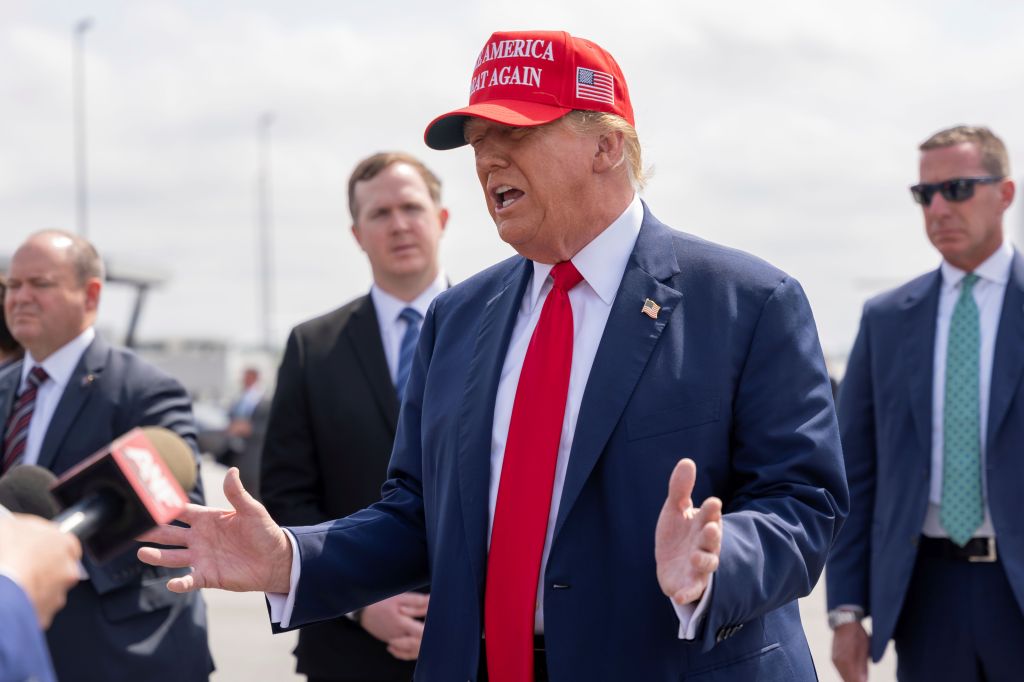Republican presidential candidate former President Donald Trump visited Atlanta on Wednesday. (AP Photo/Jason Allen)
Republicans are paying close attention to who Donald Trump chooses as his running mate. President Trump gave some hints, saying that loyalty and ideological alignment are key determining factors. And he left out some names.
As the Republican convention approaches, experts will try to answer that question. Several names have been floated as running mates, but Trump should choose someone who is young and does not have presidential aspirations.
Polls show that most Americans do not want a rematch between Trump and Biden, concerned about the ages of both candidates (Biden, 81, Trump, 77). The fact that many Americans are dissatisfied with the candidates suggests they want new, younger candidates.
These concerns create incentives for Mr. Trump to choose a running mate who appeals to younger generations. There was a sharp decline among Republicans and independents, with fewer young people planning to vote this cycle. Choosing a younger running mate could alleviate these voters' concerns.
While there is debate over how vice-presidential candidates can benefit a campaign, there are also examples of vice-presidential candidates harming campaigns. For example, when John McCain elected embattled Sarah Palin in 2008, he lost 2.1 million votes, according to a Stanford University study.
The key is to find a balance between image, experience and ideology. The 2016 election suggests that if the presidential candidate is seen as a moderate, a more conservative vice presidential candidate may be the answer. Vice versa if the candidate is more conservative.
There is another factor for President Trump to consider. He should choose someone who will not run for president in 2028. America doesn't need to wait four years and plan for a vice president to run for the White House. President Trump's potential vice president would need to fulfill his constitutional duties, advise the president, and represent the administration and the United States without considering his position in a potential White House bid. .
Has President Trump ever mentioned any names that fit the criteria? Not much.
In February, President Trump mentioned South Carolina Sen. Tim Scott and South Dakota Gov. Kristi Noem as running mate candidates. Scott and Noem are both in their 50s, so both are good answers to the age question. Both offer racial and gender diversity. However, Scott is running for the Republican nomination in 2024 and has presidential ambitions. Noem, on the other hand, did not run for president, saying, “If you can't win, why run?'' This could indicate that she has presidential ambitions and therefore she would not be a vice presidential candidate.
Ben Carson is also mentioned. Carson is among Trump's cabinet members who will provide racial diversity to a party seeking to appeal to a more diverse electorate. Carson ran for president in 2016, but it appears he currently has no presidential ambitions.
Mr. Carson is also soft-spoken and will provide balance to the more fiery Mr. Trump. All these factors would make him an ideal vice presidential candidate. But Mr. Carson is only a few years younger than Mr. Trump, so concerns about Mr. Trump's age likely won't subside.
For the sake of the Republican Party, President Trump's running mate should be there and leave when President Trump's time is up. The next vice president should be someone who doesn't want the job and doesn't want to run for president. We need new leadership, and the next president and vice president must pave the way for new and dynamic candidates to enter the field.
Galit Blizzard is a senior at the University of Texas. He wrote this on his InsideSources.com.

